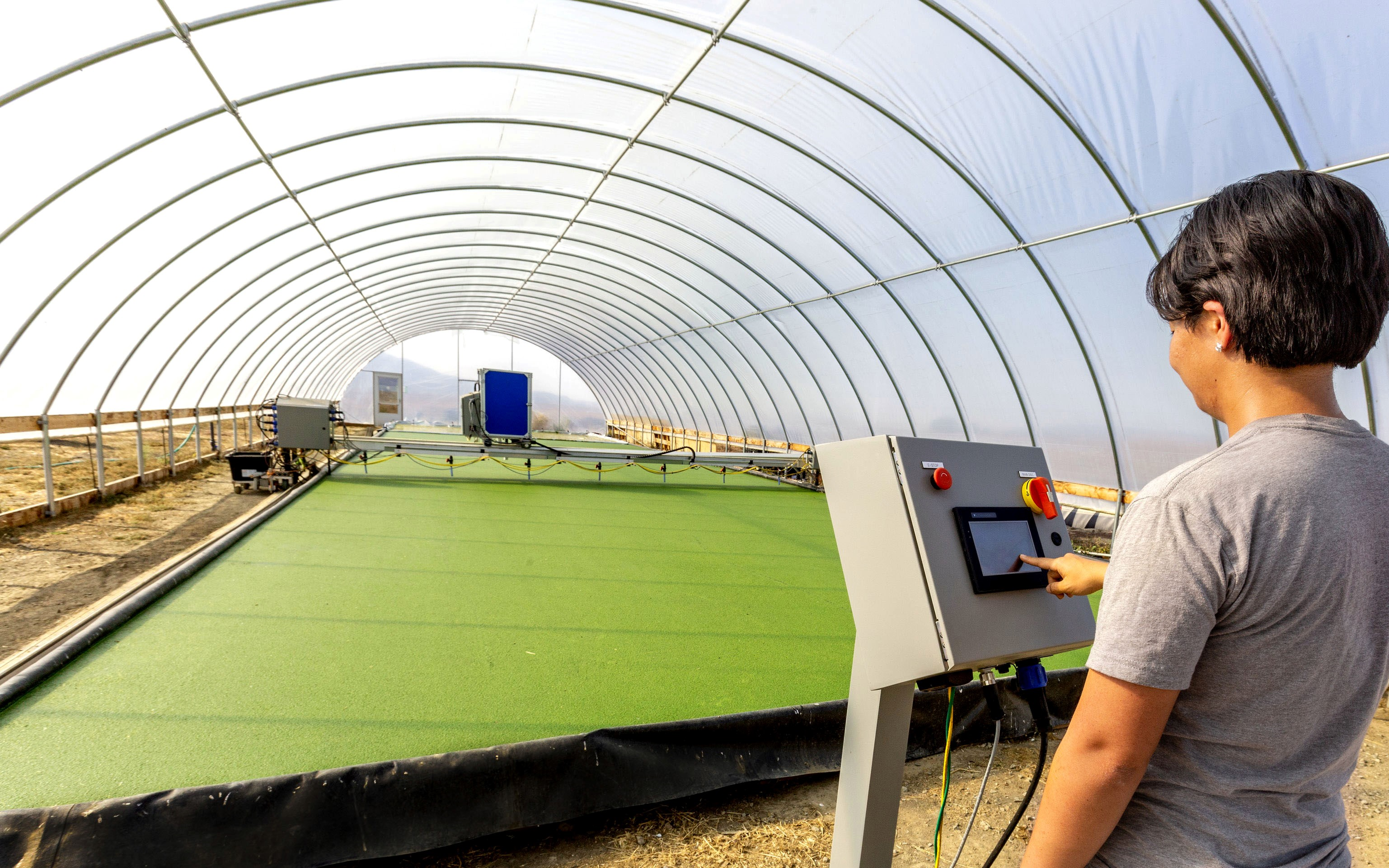Fyto wants our plants to work smarter, not harder. The San Francisco–based company is developing both hardware and software to automate and scale the production of aquatic plants, or what founder and CEO Jason Prapas calls “superplants,” in a controlled environment as a more resilient option for feed, food and soil health.
Prapas launched Fyto out of MIT in 2019 and explained that he considers these plants “super” because of the speed at which they are capable of growing, due in part to some deep plant science. Their ability to grow at scale is about automation and engineering.
Fyto’s technology taps into a farm’s waste streams as inputs to enable farmers to increase productivity and improve nutrient management while reducing production costs, water usage and greenhouse gas emissions — in some operations by over 50%, Prapas said.
In most cases, farms are able to generate 10 to 20 times more protein per acre using five to 10 times less water than crops — for example, alfalfa, which is the largest water consumer in California, according to drought management figures from University of California, Davis.
Add to that data that shows 77% of the world’s soy is fed to livestock for meat and dairy production. That’s a big reason why the company is starting with feed for dairy cows. In 2021, Fyto did a pilot with a dairy farm in Northern California to prove that its technology could grow the plants, in this case, Lemna, using manure as the feedstock.
The company’s technology is two-pronged: The first is shallow ponds where the plants grow in a water basin. Then the farmer is able to manipulate the crops using robotic automation and scooping devices to flow and move them around because they aren’t embedded in anything.

Fyto employee calibrates and activates Fyto’s pilot-scale automated cultivation system. Image Credits: Bill Reitzel
There are also no seeds — the plants reproduce in a way Prapas called “vegetatively,” where the “mother” plants split off into the next generation. The advantages of this are no land preparation and the plants double every few days, in a controlled environment, all year long.
The pilot concluded that the plants could be harvested year-round and were nutrient dense with amino acids, energy, vitamins, minerals and fatty acids shown to be highly palatable and digestible for cows.
“We had a really educational summer last year, feeding cows on an active dairy where we were growing the plants,” Prapas told TechCrunch. “Another huge issue globally, but particularly getting attention in California, is where you can see nutrients — primarily nitrogen — making its way into the groundwater from livestock operations. It’s becoming a big challenge for the whole state, but if you can introduce a process that takes that nutrient and grows plants off of it, that can then be fed to those cows. It’s a really exciting closed-loop process.”
The company is pre-revenue but plans to launch and sell its products later this year, he added. However, the pilot program touched off a need for Fyto to raise funding so that it could help the farm scale.
Today, the company announced $15 million in Series A funding, led by GV, with existing investors AgFunder, Refactor Capital, First Star Ventures and Bolt participating. The company has now raised a total of $18 million. As part of the investment, GV general partner Andy Wheeler joined Fyto’s board of directors.
The funding will enable Fyto to produce the robotic agricultural shallow pools, continue developing the automation technology and hire more people. Prapas is looking to bring in talent with expertise in deep commercial experience, getting new feed ingredients on the market, engaging with food producers and learning how to solve major problems in the agricultural sector.
“A majority of our time has been focused on feeding cows, but the breadth of what we can tackle is really an exciting opportunity space,” he added. “We have a biological library of different crops we can pull from that are, for example, shown to be excellent for poultry or others are really good amino acid profiles for human nutrition. We are definitely excited about what we can address.”
No comments:
Post a Comment